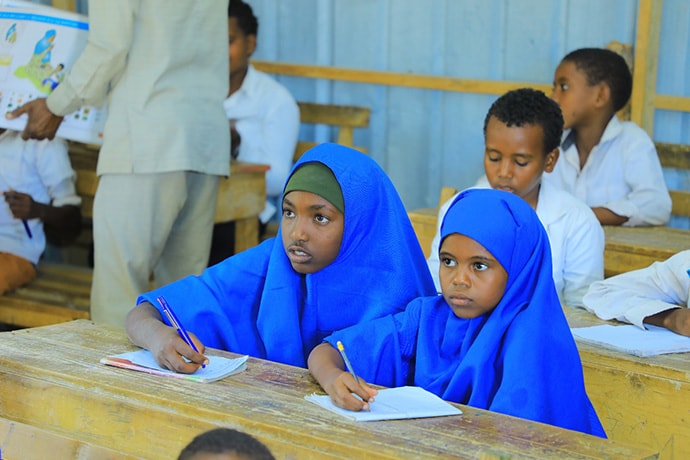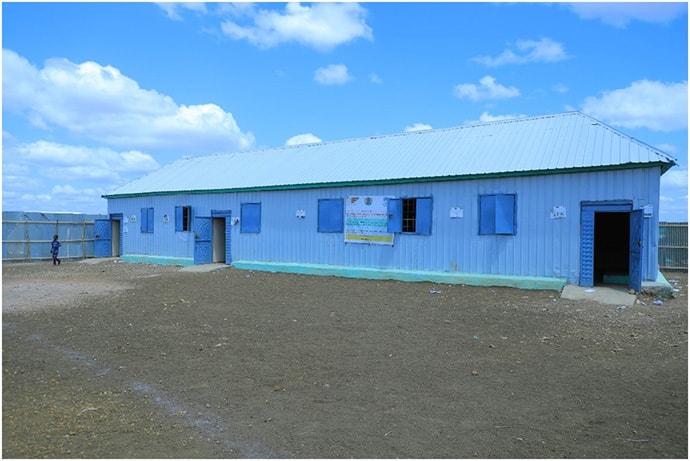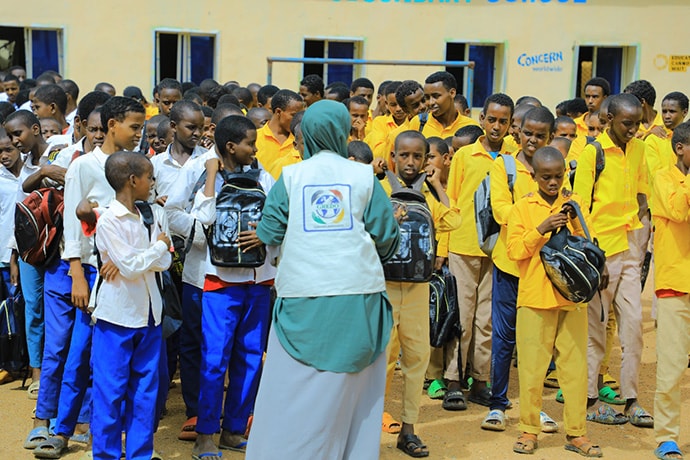By Hassan H. Inrahim Mohamed, Advocacy and Communications Coordinator, Gargaar Relief and Development Organization (GREDO)

Girls in School with learning materials provided by GREDO. Photo: GREDO
GREDO’s education program has been progressively making sustained efforts in the recent years to avail education services to the neediest out of school children in the served communities. Below are some of the areas the education program focuses on:
Provision of Teaching and Learning Materials (TLMs)
A critical component of the GREDO Education Program is the provision of Teaching and Learning Materials (TLMs). These resources are essential for effective teaching and learning, particularly in under-resourced areas. GREDO works to supply schools with age-appropriate textbooks, learning aids, and other educational materials, ensuring that both teachers and students have the tools they need to succeed. By enhancing the quality of education through TLMs, GREDO helps to create a more engaging and effective learning environment.
Construction of Temporary Learning Spaces (TLS)
With rising enrollment figures, the need for adequate infrastructure has never been more pressing. GREDO addresses this challenge by constructing Temporary Learning Spaces (TLS) that cater for the growing number of students. These facilities are designed to be safe, welcoming, and conducive to learning. By providing appropriate spaces for education, GREDO ensures that no child is left behind due to a lack of proper infrastructure. The construction of TLS not only accommodates high enrollment but also fosters a positive educational experience, encouraging students to attend and participate actively.

Temporary Learning Classrooms Constructed by GREDO. Photo: GREDO
Teacher Recruitment and Monthly Incentives
To maintain a high standard of education, GREDO places a strong emphasis on teacher recruitment. The program seeks qualified, passionate educators who are committed to making a difference in their communities. To attract and retain these teachers, GREDO offers monthly incentives, which serve as a motivation for educators to stay in their positions and invest in their students’ futures. This focus on teacher quality is crucial for the overall success of the educational program, as dedicated teachers are key to fostering a love for learning in their students.
Community Education Committees (CECs) Training
Empowering local communities also involves training Community Education Committees (CECs). GREDO provides comprehensive training for these committees, equipping them with the skills needed to effectively support educational initiatives within their communities. CECs play a vital role in monitoring school performance, advocating for the needs of students, and facilitating communication between schools and families. By strengthening these committees, GREDO ensures that community voices are heard and that educational programs are aligned with local needs.
Collaboration with the Ministry of Education (MoE)
The GREDO Education Program recognizes the importance of collaboration with the Ministry of Education (MoE). By working closely with governmental bodies, GREDO aims to align its initiatives with national education policies and standards. This partnership not only enhances the credibility of the program but also facilitates access to additional resources and support. Through joint efforts, GREDO and MoE can work towards creating a more cohesive educational framework that benefits all students.
Addressing Diverse Educational Needs: Formal, ABE, and NFE

Formal Education Supported by GREDO. Photo: GREDO
GREDO’s approach encompasses various educational pathways, including Formal Education, Accelerated Basic Education (ABE), and Non-Formal Education (NFE). By providing multiple avenues for learning, GREDO ensures that all children, regardless of their circumstances, have access to quality education. Formal education caters to traditional school-aged children, while ABE targets out-of-school youth, offering them a chance to catch up. NFE provides learning opportunities for adults and marginalized groups, thus fostering lifelong learning within the community.
Needs Mapping for Needy Children
A critical aspect of the GREDO program is the needs mapping process, which identifies children who require educational support. This systematic approach involves engaging with local communities to gather data on children’s educational backgrounds, barriers to learning, and specific needs. By understanding these challenges, GREDO can tailor its educational services to address the unique circumstances of each child, ensuring that the most vulnerable are prioritized.
Protection Services: Case Management and Referral Mechanisms
In addition to educational support, GREDO is committed to providing protection services for children. This includes case management, and referral mechanisms designed to assist children facing various challenges, such as abuse, neglect, or exploitation. By creating a safe and supportive environment, GREDO aims to ensure that every child can learn without fear. These protective measures are integral to the holistic approach taken by GREDO